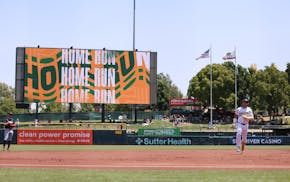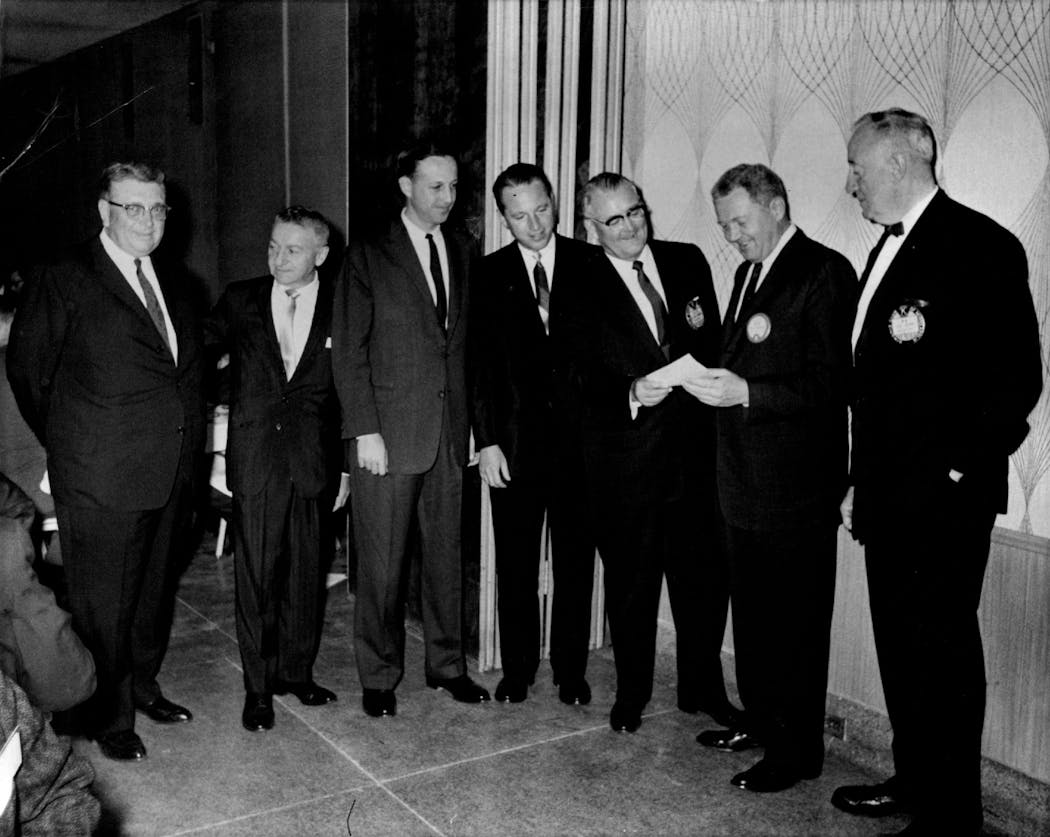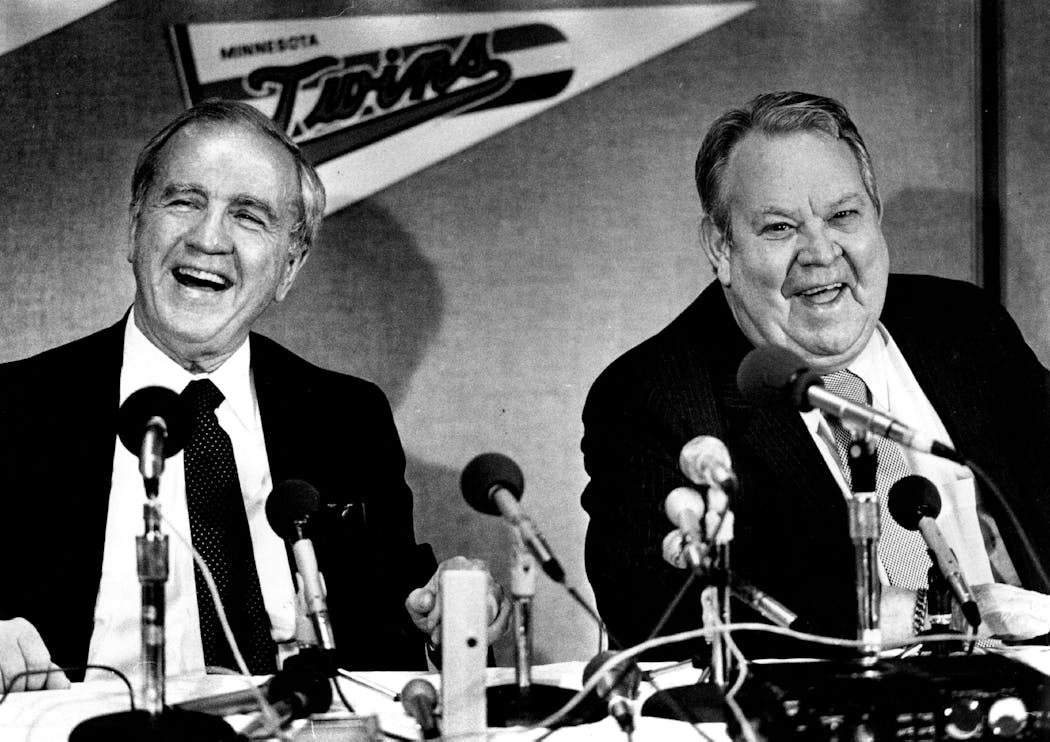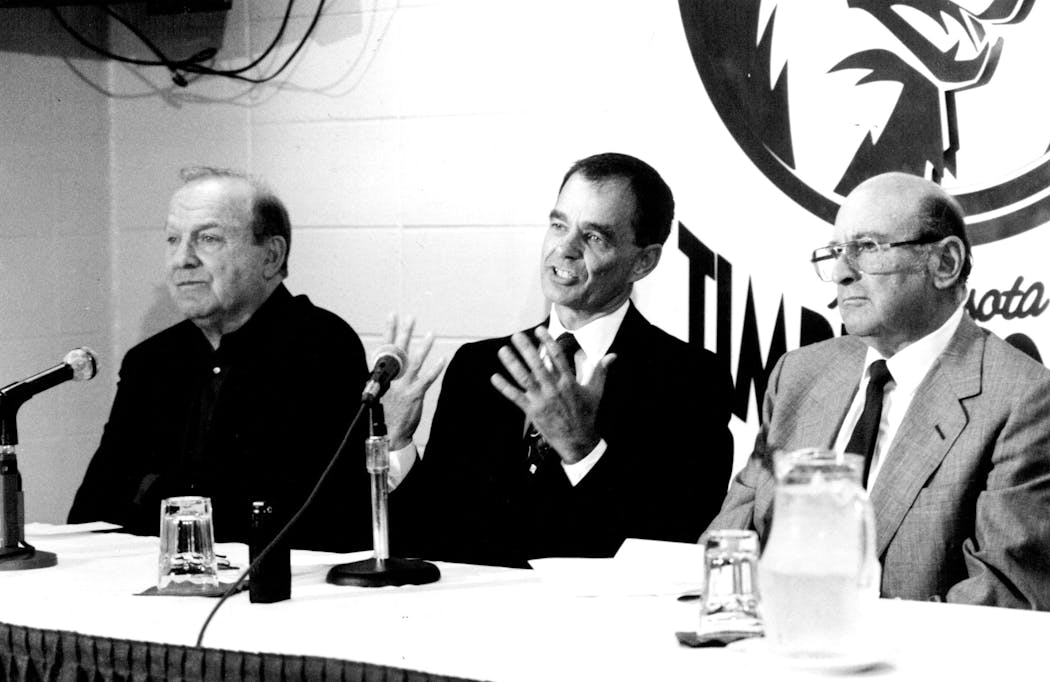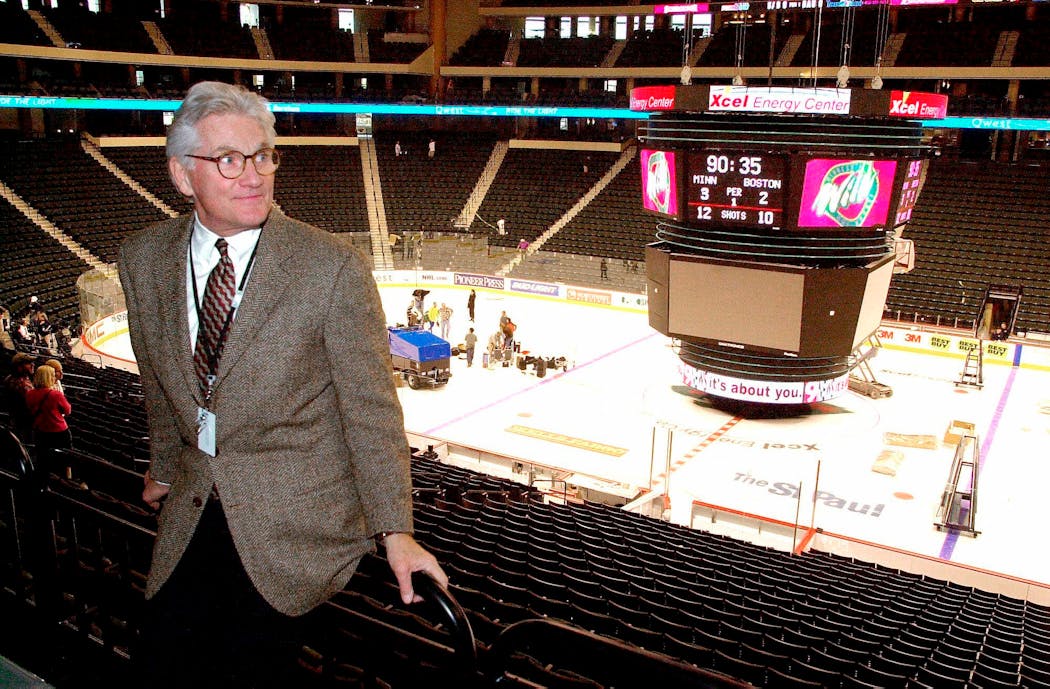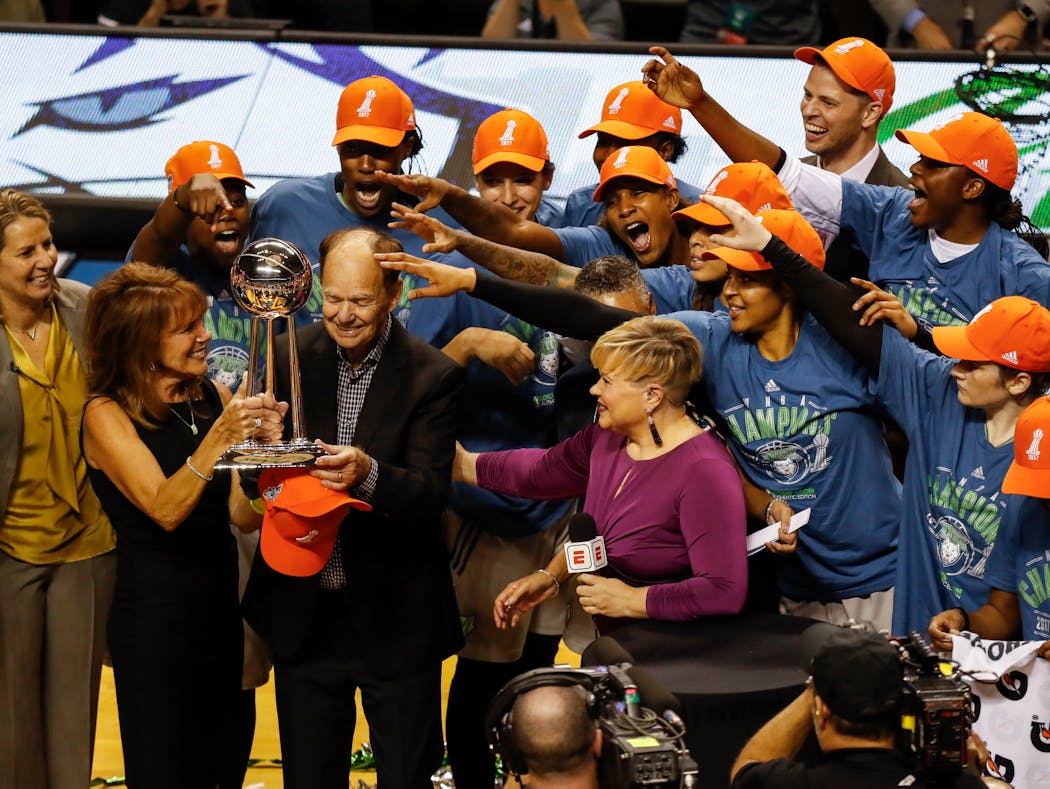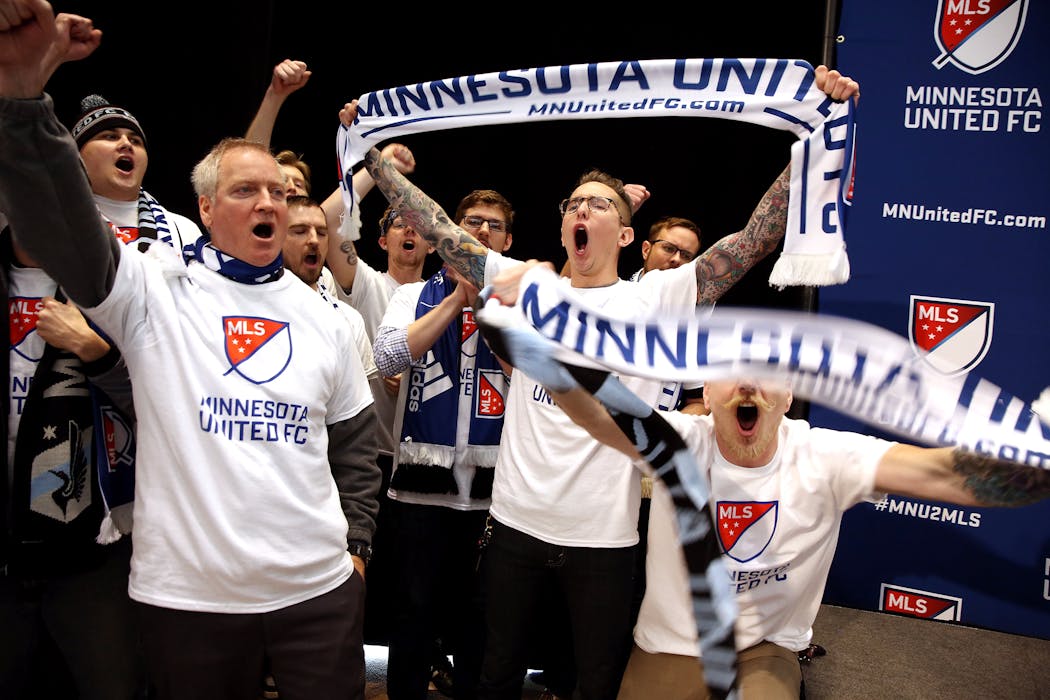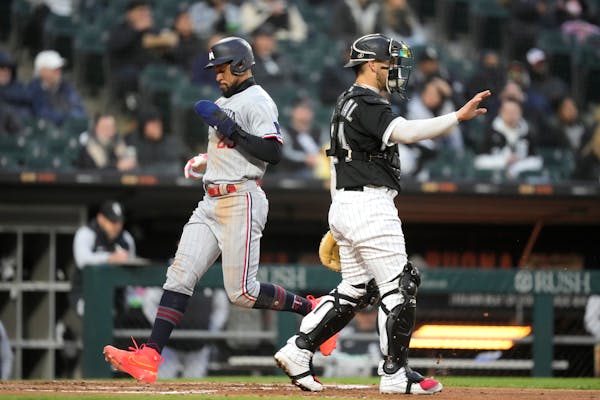It started with $1 million in January of 1960.
After the Minneapolis Lakers moved to Los Angeles and left the Twin Cities without a professional sports franchise, a group of five investors clawed their way through negotiations with the NFL to land an expansion team.
And just like that, the Twin Cities were back to being pro sports towns.
It seems unlikely that anyone at the time could envision the exponential growth in value that would come to sports franchises in Minnesota.
Since the Vikings started playing, the state added the Twins in 1961, watched as the North Stars came in 1967 and went in 1993, and gained the Timberwolves in 1989, the Wild in 1997, the Lynx in 1999 and Minnesota United in 2017.
The current estimated market value of the six local pro teams is over $8 billion.
What's happened in Minnesota is not surprising, said David M. Carter, an adjunct professor at the USC Marshall School of Business who has spent 30 years as a sports business consultant.
First, the supply of franchises to purchase remains stable while the demand to purchase teams remains high. Second, there is no reason to believe the soaring value of franchises is going to stop anytime soon as new revenue streams continue to emerge: Think sports gambling, social media, international markets and broadcast deals.
"When you think about valuing these franchises, it's really all about what you believe you're going to be able to capture down the road in terms of new revenue streams," Carter said. "So you sit back with your crystal ball — some of it is art, some of it is science — and you think, 'Where do I think revenue is headed?'"
Dan Snyder recently agreed to sell the NFL's Washington Commanders for $6.05 billion in the midst of Congressional and internal investigations. It will be the highest price ever paid for a North American sports team. The sale was discussed last week when the NFL held its league meetings near the Vikings' team headquarters in Eagan, with Commissioner Roger Goodell confident the sale would happen.
"I think we'll get it to a place where we'll get it approved," he said. "We're hard at work as a staff looking at that, as we do every transaction. There's a lot of due diligence, as well as compliance issues."
Locally, billionaire Marc Lore and former baseball star Alex Rodriguez are set to become the newest pro team owners in Minnesota when they are scheduled to take over majority share of the Timberwolves and Lynx next year from Glen Taylor, who also owns the Star Tribune.
Lore and Rodriguez agreed to pay $1.5 billion to join an elite group. Along with being expensive, the chance to buy a majority ownership stake in a pro sports team is rare. The Vikings and Timberwolves have been sold twice, the Twins and Wild once.
Here is a look at the valuation and sale history of Minnesota teams in the six biggest professional leagues. All current valuations are via Forbes. (The surge in values doesn't account for inflation, but the trend is still overwhelming.)
Vikings
Original purchase price: $1 million.
Most recent sale: $600 million in 2005.
Current valuation: $3.95 billion.
Growth: 558% in 18 years.
First owners: The Vikings operated as a board of directors, the first five men to run the team starting in January of 1960 were: Max Winter, E. William Boyer, H.P. Skoglund, Ole Haugsrud and Bernard H. Ridder, Jr.
Sales:
* The board of directors had several members sell stakes during the 38 years the team operated under that ownership structure. The two most crucial sales were when Max Winter sold his 46% stake in the team to Irwin Jacobs, Carl Pohlad and Fran Tarkenton for $25 million. This led to years of court wrangling over who ran the team, and the Minnesota Supreme Court eventually allowed the sale in 1987. Four years later, a group led by team CEO Mike Lynn and president Roger Headrick bought out Jacobs' group for $50 million.
* The board of directors put the team up for sale for the first time in 1997. For a moment, author Tom Clancy had the high bid of $200 million before his finances fell through.
* On July 2, 1998, San Antonio auto dealer Red McCombs purchased the team for $205 million.
* On May 25, 2005, New Jersey real estate developer Zygi Wilf purchased the team for $600 million.
Quotable history: Wheelock Whitney, one of the Vikings minority owners, explaining in 1991 how the team found the money to pay $50 million to the group led by Jacobs four years after they bought-in for $25 million: "The Vikings have been profitable, even though we'd like to have made the playoffs. We're going to make part of the payment to Jacobs and Pohlad with surplus cash. We're going to borrow the rest as the Viking corporation."
Twins
Original purchase price: $87,000.
Most recent sale: $32 million in 1984.
Current valuation: $1.4 billion.
Growth: 4,275% in 39 years.
First owner: Major League Baseball approved Calvin Griffith's plan to move the Washington Senators to Minnesota in October 1960. In 1919, his uncle, Clark Griffith, had taken over majority ownership of the franchise, which started in 1901. According to the Society for American Baseball Research, Clark used a loan of $87,000 to purchase 85% of the team.
Sales:
* Calvin Griffith put the club up for sale in 1984 after losing money for several seasons. There were threats of relocation — and offers to purchase the club from outside interests, including a group from Tampa, Fla., that was nearly finalized.
* On June 20, 1984, Pohlad purchased the team for $32 million.
* When Carl Pohlad died in 2009, ownership of the team transferred to his sons Jim, Bill and Bob. Joe Pohlad, Bob's son, took over day-to-day operations of the club in 2022.
Quotable history: Griffith on the day the sale to Pohlad was finalized by Major League Baseball: "I just saw the handwriting on the wall where I might not be able to pay the bills ... Mr. Pohlad will keep the boys together. And it's going to make a big difference having a person there that can afford to lose a little money." The Twins would nearly move to North Carolina in 1997 and were voted to be contracted by MLB in 2001 before Hennepin County Judge Harry Crump ruled it illegal.
Timberwolves
Original purchase price: $35 million.
Most recent sale: $90 million in 1994.
Current valuation: $1.67 billion.
Growth: 1,756% in 29 years.
First owners: Marv Wolfenson and Harvey Ratner, who had tried to purchase the Twins in 1984, spent two years luring the NBA back to Minnesota. They were awarded an expansion franchise in 1987 along with plans for a downtown arena; the team debuted in 1989.
Sales:
* By 1993, Wolfenson and Ratner were $100 million in debt toward paying off Target Center and a city-backed bond. They began looking for public financial support or an outside buyer to pay off the arena.
* On May 23, 1994, a group from New Orleans purchased the Timberwolves for $152.5 million with the intent of moving the team.
* On June 15, 1994, the NBA blocked the sale, citing unsecured financing.
* On August 5, 1994, Taylor, a Mankato businessman, purchased the team for $90 million.
* On April 10, 2021, Rodriguez and Lore agreed to buy the Wolves, along with the Lynx, for $1.5 billion. The sale of Taylor's shares were broken into a series of call options, with the transfer of majority ownership set to take place this year.
Quotable history: After the Wolves were sold to a group intending to move the team to New Orleans in 1994, Wolfenson said: "It just didn't work out. We either overbuilt the arena or underestimated what [Target Center] would do financially. That was our error. We stayed with it for four years. We just aren't the kind of guys who can afford to take that kind of hit."
Wild
Original purchase price: $80 million.
Most recent sale: $250 million in 2008.
Current valuation: $850 million.
Growth: 240% in 15 years.
First owner: Seven years after the North Stars moved to Dallas, businessman Bob Naegele Jr. and a group of investors paid $80 million for an NHL expansion franchise that was awarded on June 17, 1997.
Sales:
* On Jan. 10, 2008, Wisconsin and Tennessee businessman Craig Leipold, who had recently sold his ownership of the Nashville Predators, purchased the Wild for $250 million
Quotable history: While Naegele was awarded the franchise, then St. Paul Mayor Norm Coleman had just as much at stake, having promised to build a new $130 million arena to replace the St. Paul Civic Center. Announcing the franchise and arena plan in 1997, Coleman said, "I can't walk down the street without people giving me the high sign and saying: 'Thank you.' "
Lynx
Original purchase price: N/A.
First owner: At its inception, the WNBA was owned collectively by the 29 NBA teams and when Minnesota was awarded a franchise on April 22, 1998, they were operated by the Timberwolves and Taylor. The awarding of the franchise was contingent on 5,000 season-ticket deposits being received.
Sales:
* Rodriguez and Lore bought the Timberwolves and Lynx for $1.5 billion, though the valuation of the Lynx part of the deal was not broken out publicly.
Current valuation: There is no current valuation for the Lynx, and comparisons across the WNBA are hard to make. The Las Vegas Aces were sold for a little more than $2 million in 2021, but in February of this year, the Wall Street Journal reported that the Seattle Storm had sold minority ownership stakes that valued the team at $151 million.
Quotable history: After years of financial losses, Taylor stuck with the Lynx. Ahead of Game 1 of the WNBA Finals at Target Center in 2011, he said: "This state has been really good to me, and I just think there's a responsibility. We wanted to get a women's league going. That's part of giving back. Even though it hasn't been financially successful, I think it could be. We just have to stay with it. I just think it's the right thing to do.''
Minnesota United FC
Original purchase price: $100 million in 2015.
Most recent sale: None since the original purchase.
Current valuation: $540 million.
Growth: 440% in 8 years.
First owner: Dr. Bill McGuire led a group, including local owners Taylor and Jim Pohlad, that secured the expansion franchise rights to Minnesota United FC on March 25, 2015. They edged out a group led by Vikings owners Zygi and Mark Wilf.
Quotable history: After losing the 18-month battle over the rights to the new MLS franchise in Minnesota, Vikings spokesman Lester Bagley said: "We have been and continue to be in discussion — ongoing dialogue — with the MLS. We're monitoring and watching the situation. But we congratulate United." In 2017, the Wilf family became minority owners of Nashville SC. In 2021, they purchased Orlando City SC and the Orlando Pride of the National Women's Soccer League for a reported $400 to $450 million and sold their stake in Nashville SC.
Yuen: How success has pushed Minnesotans off sidelines in trans athlete debate
David Festa's return to Twins goes south in a hurry
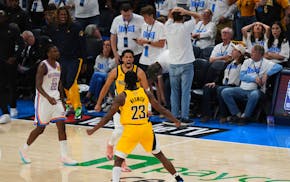
NBA Finals: Haliburton caps huge rally with winning jumper as Pacers stun Thunder 111-110 in Game 1

Twins call up pitching prospect Travis Adams to bullpen
